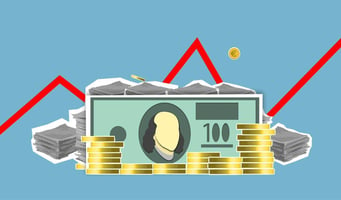Business Loans for Healthcare Companies: A Complete Financing Guide for Medical Providers...
What Is a Business Debt Schedule?
Anyone with a business or organization that has cash flow should find some way to keep track of expenses made so that payments are made on time and penalties are not accrued. Most small business owners and entrepreneurs keep track of debts by using a business debt schedule.
What Is a Business Debt Schedule?
A business debt schedule is a complex form of our example with the stack of bills piled up with the earliest due dates at the top. The schedule lists debts that a company has accumulated. Typically, it will include long-term debts as opposed to other small expenses that occur daily.
Some of the following are examples of what they may include:
- Loans
- Contracts
- Notes payable
- Leases
- Settlements
- Other payables
What Is Included on a Business Debt Schedule?
Having a business debt schedule maintained is the key to avoiding triggering late payment fees, reporting taxes, tracking profit margins, and measuring the success of the business.
The details of the creditors and lenders that the company is working with is contained on a business debt schedule. It will maintain and updated current balance sheet. Debt amounts will be tracked and noted in detail including due dates, payment amounts, maturity dates, and collateral if applicable.
A business debt schedule is an important tool to use when a company wants to negotiate with partners or creditors. The best debt schedules contain sections with a complete description of each credit account.
The Benefits of a Business Debt Schedule
As your business starts to grow, your accounts, expenses, and debts can get more complex. It is important to get into the habit of having a business debt schedule so that they help you keep track of your finances.
As your business continues to grow, there may come a time where your financial situation is complex, and you need a professional accountant to manage your debt profile.
The following are some of the benefits that come with a business debt schedule:
- Decrease spending: tracking spending will help you stop making unnecessary purchases.
- Never miss a payment: you can avoid missing payments by keeping track of your debts.
- More accurate forecasting: you will have accurate and ongoing account of your cash flow profile.
- Track financial health: you will be able to see what marketing campaigns and business processes working and which ones are not so that you can make better business decisions.
- Determine your company’s readiness to take on more debt: your debt schedule tells you your financial status and what the foreseeable future looks like. This gives you a better idea if you can sustain more debt.
- Provide information to potential leaders: having all the information about your business will have lenders approve you for a loan.
- Tax reporting: the IRS will be satisfied with your reporting.
Whether your business is small or large, having a business debt schedule is a great way to keep tracking on your financial information.



